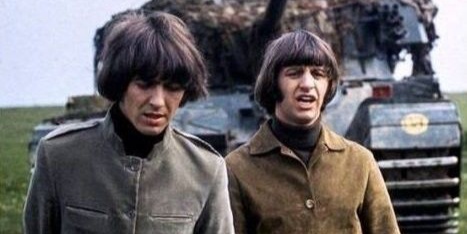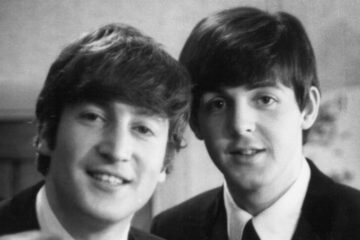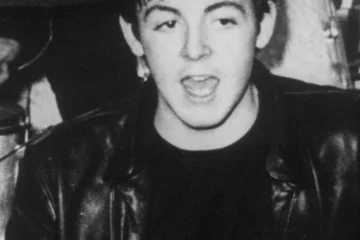George Harrison struggled to find the recognition he deserved when he began songwriting in earnest for The Beatles. The guitarist had garnered a reputation as the Quiet Beatle, and for a time, it seemed as though he would stay true to his identity and perform from the shadows or be as close as the Fab Four could get to the shadows. His position as the group’s lead guitarist wasn’t even guaranteed, with McCartney often taking over the six-string reins when necessary. But, for a long time, it appeared as though Harrison was happy with the arrangement.
Eventually, though, something clicked for Harrison, and he began penning some of his own pop tunes for the band. Many of these songs were pushed back by the songwriting powerhouse of John Lennon and Paul McCartney, but eventually, they couldn’t deny the musician’s talent, and allowances were made to house a Harrison number on every record.
His first track, ‘Don’t Bother Me’, a typically cantankerous ditty, was swept under the carpet. Still, his 1966 landmark song ‘Taxman‘ suggested that Harrison was looking to break free from the shackles of the Lennon-McCartney partnership even then. Being stuck behind the two songwriters must have been difficult to adjust to in the face of one’s growing talent. But thankfully, it was all embittered studio battles.
Far from always working against him, John Lennon would accommodate Harrison’s new venture and offer tips and the “odd line” whenever required. The guitarist also sought help from outside of the group too, leaning on Bob Dylan, Eric Clapton and Ravi Shankar to perfect his songwriting chops. By the time The Beatles had decided to call it quits, Harrison was ready to break out and be a star in his own right.
In truth, he achieved it too, largely surpassing expectations and beating out Lennon and McCartney in the process, with his seminal triple album All Things Must Pass. While McCartney’s career would go on for far longer than any of his bandmates, Harrison’s output was, at the start of their solo careers, far better received. On the album were countless tracks penned during his time with The Beatles that the Fab Four had deemed unfit for purpose.
The fact the album sold millions of copies and is widely regarded as the finest post-Beatles solo album of any member is a testament to Harrison’s talent and the frustrations he must have held when trying to find his feet.
The break up of the band was, all told, a good move for Harrison. It allowed him to open up his creativity and pursue a brand new style of pop music. However, it was hardly a harmonious separation and, as well as insults and vague barbs; the group endured lengthy legal battles that would rumble on in the courts for weeks at a time.
It is one of the saddest moments of The Beatles iconography. Realising just how business savvy they were was a moment that left many fans feeling cold. The preferred image of any band in their fans’ mind’s eye is that they would happily be writing and recording music if they were paid or not. When McCartney broke away from the band, he did so with lawyers and business advisors in tow, ready to defend him at the drop of a hat and protect his assets. At a time when the wealthiest people in Britain were being charged incredibly high taxes, the need to keep hold of every penny became even greater.
For the first years of their split, it meant that the group was embroiled in courtroom conferences. McCartney was happy to hide behind Linda’s father and family as they prepared for his continuous litigious behaviour. Lennon was equally duelled with McCartney in the courtroom experience. However, for one of Macca’s fiercest opponents, the need for so many lawyers was unbearable. George Harrison wouldn’t show his hand in front of a judge; he made his feelings clear on ‘Sue Me, Sue You’.
“Around that time, we had millions of suits flying here, flying there,” recalled McCartney to Rolling Stone in 1973. “George wrote the ‘Sue Me, Sue You Blues’ about it. I’d kicked it all off originally, having to sue the other three Beatles in the High Court, and that opened Pandora’s box. After that, everybody just seemed to be suing everybody.”
The track was released as part of Harrison’s Living in the Material World album from 1973 and saw Harrison draw directly from the Beatles’ courtroom experience. With McCartney winning the courtroom battle, Lennon made his feelings clear by launching two bricks through his window, but Harrison was a different man. He would use his song to make it clear how he felt: “Now all that’s left is to find yourself a new band.”
George Harrison was never afraid to put how he felt into a song. Whether it was a spirituality or the endangering nature of a courtroom drama, the singer always provided something honest and authentic. It would be part of why he was so successful as a solo artist and part of the reason The Beatles needed to break up in the first place.




